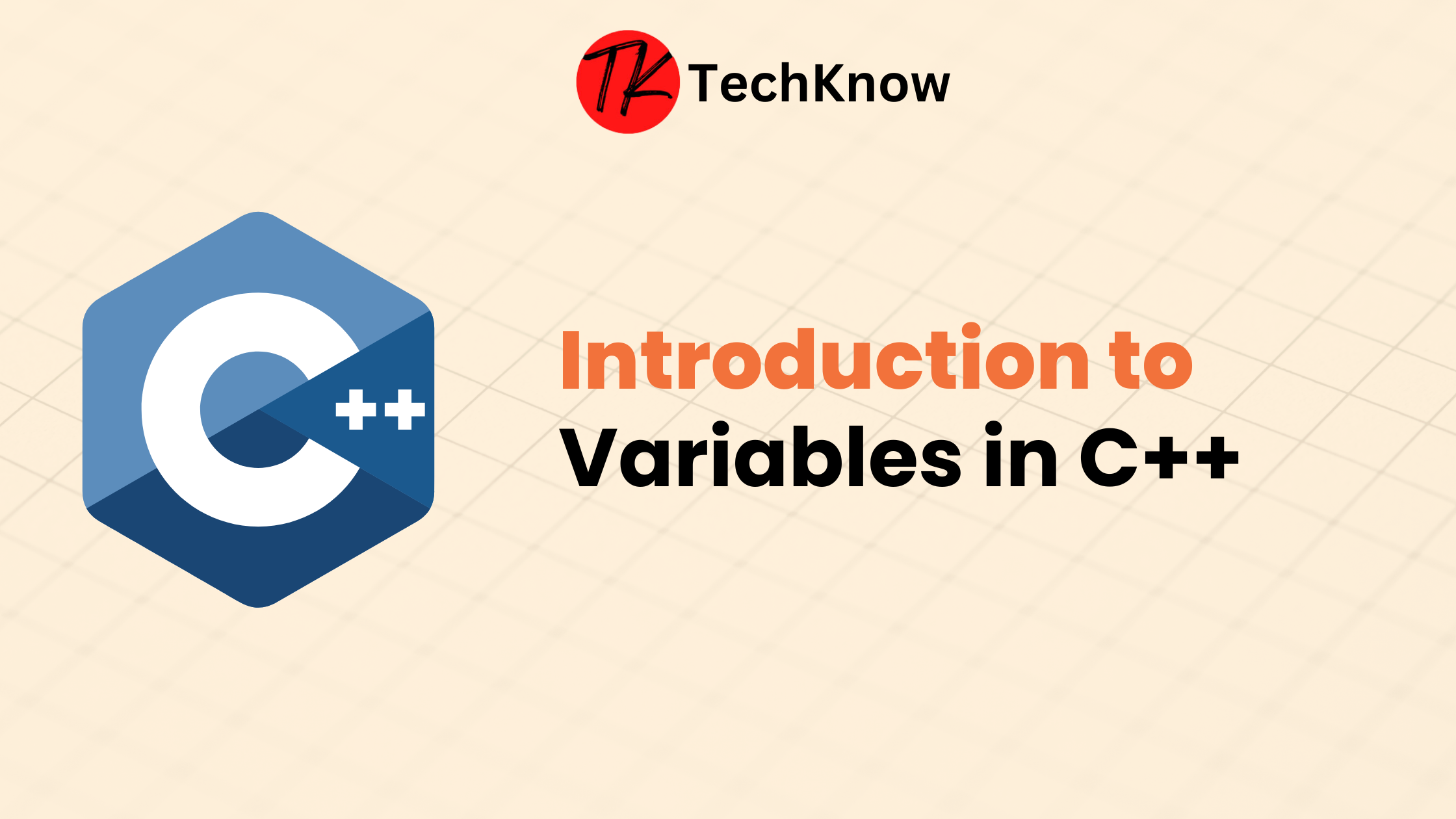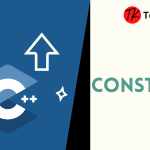Because they are used to hold data that can be changed while a program is running, variables are important. C++ Variables serve as holding spaces for values that change during the course of a program. Because of this, variables are necessary for handling dynamic data in any form, including processing text, integers, and other complicated data kinds.
Table of Contents
What is a Variable?
In C++, a variable is the name assigned to a memory address that holds data that can be used and changed while the program is running. Each variable in C++ has a unique type that controls the memory layout and size of the variable. The set of operations that can be performed on that variable and the range of values that can be stored are also specified by the type.
Declaring and Initializing Variables
A variable must first have its type specified before its name can be declared. As an illustration:
int age;
float height;Here, int and float are data types, while age and height are variable names.
When a variable is initialised, it is given a value at the moment of declaration.
int age = 25; // Declaration and initialization
float height = 5.9;Important Points
- Declaration: Tells the compiler to create space in memory for the variable.
- Initialization: Assigns a value to that space.
Types of C++ Variables (Data Types)
C++ has multiple fundamental data types for storing various kinds of values. Several frequently utilised data types include:
1. Primitive Data Types:
- int: Stores integer values (whole numbers).
int age = 30;- float: Stores floating-point numbers (decimals).
float temperature = 98.6;- double: Stores double-precision floating-point numbers (more accurate than
float).
double largeValue = 123.456789;- char: Stores single characters.
char grade = 'A';- bool: Stores boolean values (
trueorfalse).
bool isPassed = true;2. Derived Data Types
- Array: Collection of variables of the same type.
- Pointer: Stores memory addresses.
3. User-Defined Data Types
- struct: Structure is a way to group variables under one name.
- enum: Used to define a set of named integer constants.
Learn on Youtube:
Variables in C++
Variable Naming Rules
When naming variables, there are certain rules to follow in C++:
- C++ Variables names can contain letters (
a-z,A-Z), digits (0-9), and underscores (_). - Variable names must begin with a letter or an underscore, not a number.
- C++ is case-sensitive, meaning
age,Age, andAGEare different variables. - Reserved keywords (like
int,return,while, etc.) cannot be used as variable names. - Variable names should be descriptive to indicate the role they play in the program (e.g.,
totalMarks,employeeSalary).
Example of valid and invalid variable names:
int studentAge; // Valid
int _count; // Valid
int 3dogs; // Invalid (cannot start with a number)
int char; // Invalid (char is a keyword)Scope of C++ Variables
The area of the program where a variable can be accessed is referred to as the variable’s scope in C++. Three primary categories of scopes exist:
- Local Variables: Declared inside a block or function and restricted to usage therein.
void func() {
int x = 10; // Local variable
}- Global Variables: Declared outside of all functions and can be accessed from any part of the program.
int x = 20; // Global variable- Static Variables: Retain their value even after the scope in which they were declared has finished executing.
void func() {
static int count = 0;
count++;
}Constant C++ Variables
When a variable’s value cannot change while the application is running, constant variables are utilised. The term const is used to declare a constant variable.
const int MAX_LIMIT = 100;In the above example, MAX_LIMIT is a constant variable, and its value cannot be altered once it is set.
Example
Here is a example of variable declaration and initialization:
#include <iostream>
using namespace std;
int main() {
// Declaring and initializing variables
int age = 25;
float height = 5.9;
char grade = 'A';
bool isPassed = true;
// Outputting the values
cout << "Age: " << age << endl;
cout << "Height: " << height << endl;
cout << "Grade: " << grade << endl;
cout << "Passed: " << (isPassed ? "Yes" : "No") << endl;
return 0;
}Output:
Age: 25
Height: 5.9
Grade: A
Passed: YesConclusion
C++ Variables are necessary to store and manipulate data. Writing efficient programs requires knowing how to define, initialise, and use variables properly. You can build clear and effective C++ code by managing variable scope, selecting the right data types, and adhering to naming conventions.
Learn More:
First C++ Program










